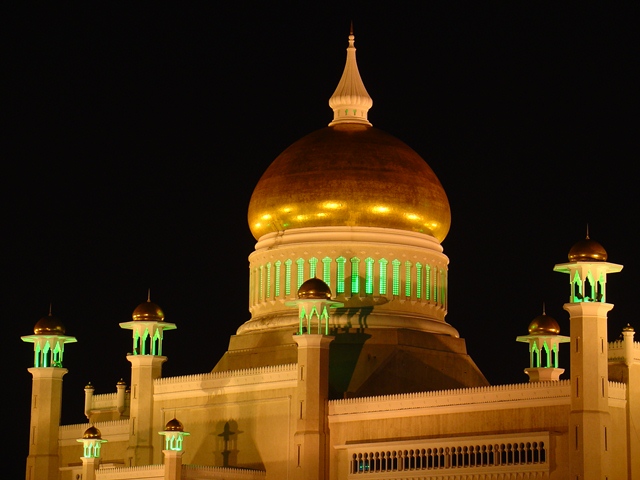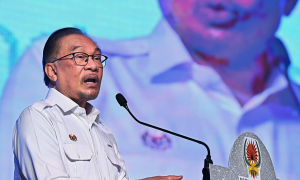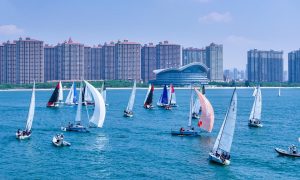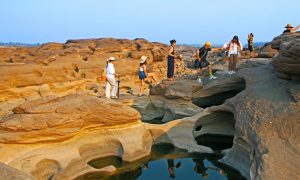
The Sultanate of Brunei may be small in size, but it packs a mighty punch. Brimming with oil, this tiny country is one of the richest nations in the world. Manveen Maan takes a closer look at one of the oldest countries in Asia and its rise to power.
Brunei is one of the few countries in the world that enjoys a healthy GDP and a very high standard of living. The only Malay state that chose to remain a British dependency rather than join the Malaysian Federation, Brunei gained independence in 1984 and, thanks to its large reserves of oil and gas, now has one of the highest standards of living in the world. Its ruling royals, led by the head of state Sultan Hassanal Bolkiah, possess a huge private fortune and are routinely featured on “world’s richest” compilation lists.
Early Years
There are few records of Brunei before the arrival of Europeans but there are references to trade with the country in the 6th century, during the Tang dynasty. At that time, the state was under the Majapahit empire of Java and held a considerable grip over Borneo and even the Philippines.
Islam came to Brunei in the early 15th century having arrived there through merchants and travellers from the Middle East. With Islamic rule, Brunei rose to the height of its power during the 16th century under one of its greatest leaders, Sultan Bolkiah. Bolkiah made a number of expeditions with his fleet to Java and Malacca and made conquests not only in Borneo but also as far as the Philippines.
In 1511, the Portuguese conquered Malacca, and Muslim refugee traders and merchants fled to Brunei. However, Brunei would suffer the same fate in 1521 at the hands of the Portuguese explorer, Ferdinand Magellan, and his crew. The Portuguese eventually became welcome trade partners and enjoyed the fruits of Brunei’s wealth while they were there. Relations with the Spanish were far colder, particularly after Spain captured Manila and expelled the ruling Bruneian family there in 1571. Spain tried to invade Brunei in 1578, but had to retreat after a deadly outbreak of disease. The following years saw the threat of European conquest but somehow Brunei managed to stand its ground.
Hail Britannia
Brunei retained its independence until 1846, when the British gained control over the territory after an internal disagreement over the succession. Brunei was formally made a British protectorate in 1888, followed by an increase in trade with other countries.
In 1941 however, British control of Brunei was interrupted. The Japanese Imperial Army overran the territory with just 10,000 men, and held the area until June 1945. For four long years, the country survived under Japanese rule, until the country was bombed extensively and recaptured by Allied forces after three days of heavy fighting. The Japanese formally surrendered in Labuan on 10 September 1945, and the British Military Administration took over and remained until July 1946.
From then on, the Sultanate came under increasing pressure from the Brooke regime (in Sarawak), as well as American and European speculators in Sabah, to release more territory. Sandwiched between the North Borneo Company to the Northeast and the Brooke State in the Southwest, the formerly powerful Sultanate of Brunei was reduced to the size it is today.
Times A Changin’
Two events brought tremendous changes to Brunei. One was the discovery of oil in 1929; the other was the extension by Britain of formal protection to Brunei in a protectorate agreement in 1905.
In 1950, Sultan Sir Haji Omar Ali Saifuddien ascended to the throne on the death of his brother. He ruled for 17 years, and in October 1967 he abdicated the position in favour of his eldest son, Sultan Muda Hassanal Bolkiah, who was crowned in 1968.
During Sir Omar’s reign, a new constitution was written in 1959 citing Brunei as a self-governing state, while its foreign affairs, security, and defence remained the responsibility of the United Kingdom.
Although dissident groups made representations for reunification with Sarawak and the newly formed Malaysia, Sir Omar made the decision that Brunei should remain an independent state. Following that, Brunei enjoyed a period of stability and prosperity. True to a treaty signed in 1979, Brunei achieved full independence at midnight on 31 December 1983. The next day, Brunei became a member of the Commonwealth and joined ASEAN within a week. On 21 September 1984, Brunei became the 159th member state of the United Nations.
Modern Day Living
Brunei may be a small country, but it carries a lot of weight. Its thriving economy is based upon oil and natural gas extraction, which accounts for 90% of the nation’s GDP. About 167,000 barrels of oil are produced every day, making Brunei the fourth-largest producer of oil in Southeast Asia. It is also the ninth-largest exporter of liquefied natural gas in the world.
Brunei boasts the ninth-highest per capita GDP in the world, the unemployment rate in Brunei is an enviable 2.7%, and the number of people living below the poverty line is negligible.
In theory, the modern day government of Brunei is a constitutional sultanate, but in practice the sultan wields absolute power as the head of government. A state of emergency has been in place since 1962, providing the sultan with many powers outside of those granted in the 1959 constitution. The current sultan, Haji Hassanal Bolkiah, has been in power since his father’s 1967 abdication.
During His Majesty’s reign, a fast-paced modernisation program built upon the nation’s oil wealth, resulting in a noted improvement in quality of life for all Bruneians. Now leading the nation into the 21st century, Bolkiah’s government is responsible for the booming construction and infrastructure expansions which have turned Brunei into one of Southeast Asia’s most developed nations. Attracting foreign investment, improving the nation’s human resources base, and tourism development are all measures that the country is promoting to prepare the nation for the challenges of the future, when a diversified economy will be needed to maintain the high standards of living currently enjoyed by the people of Brunei.
——————————————————————————————————————–
BRUNEI
Size: 5,765 km2 (World rank: 172nd)
Population: 408,786 (2011 estimate)
Capital city: Bandar Seri Begawan
Largest city: Bandar Seri Begawan
Government: Unitary Islamic absolute monarchy
Official language: Brunei Malay
GDP PPP*: $50,440
HDI**: 0.855, very high (World rank: 30th)
Currency: Brunei dollar (1BND = 1SGD =2.55MYR)
*GDP per capita, purchasing power parity, international dollars
**Human Development Index, a comparative measure of life expectancy, literacy, education, standards of living, and quality of life for 187 countries worldwide. (For comparison, Malaysia’s HDI is 0.769, high, and is ranked 64th.)
NOTABLE FACTS:
Brunei, along with Singapore, are the two smallest countries in ASEAN, but are by far its two most economically formidable. The two nations’ currencies are managed at a fixed exchange rate of 1:1 by the Monetary Authority of Singapore and the Brunei Currency and Monetary Board. The largest-denomination banknote in Brunei is $10,000; this note, along with its identical counterpart in Singapore, are the world’s most valuable single banknotes officially in circulation, currently worth nearly US$7,900, or over RM25,000.
Oil, the source of Brunei’s considerable wealth, was discovered in 1929. A well near the Seria river was drilled in July 1928, and oil was struck at 297 meters nine months later. In August 1929, a second well was drilled, and that well is still producing oil today. The extensive crude oil and natural gas reserves in Brunei have made the tiny ASEAN nation one of the richest in the world today.
Brunei comprises two small segments of land which are completely surrounded by the Malaysian state of Sarawak, excepting the coastline, which fronts the South China Sea. About 97% of Brunei’s population live in the larger western segment.
Source: The Expat September 2013
Read more:
- Why is Malaysia’s Passport One of the Best for Travellers?
- Kuah Town in Langkawi: Looking to the Future
- Is Malacca Building a Bridge to Indonesia?
What are your thoughts on this article? Let us know by commenting below.No registration needed.
"ExpatGo welcomes and encourages comments, input, and divergent opinions. However, we kindly request that you use suitable language in your comments, and refrain from any sort of personal attack, hate speech, or disparaging rhetoric. Comments not in line with this are subject to removal from the site. "

















